Hey there! We're reaching out to remind you about the importance of getting your cardiovascular health assessed. Regular check-ups can help you stay in tune with your heart's health and catch any potential concerns early. Your well-being is our priority, and we want to ensure you're living your healthiest life possible. So, keep reading to discover more about how to take control of your cardiovascular health!
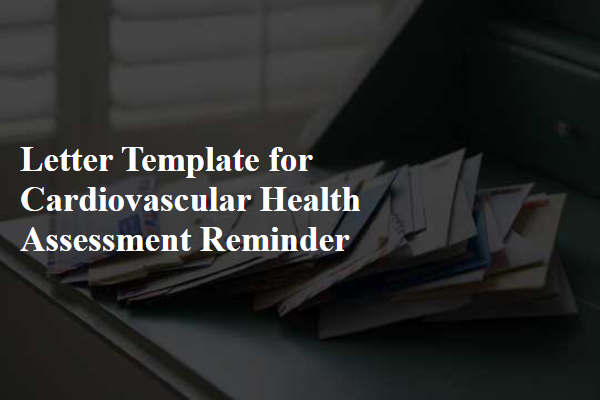
Personalization (name, specific health details)
Cardiovascular health assessments play a crucial role in monitoring the heart's well-being, especially for individuals with specific health conditions. A personalized reminder, such as including the patient's name (e.g., John Smith) and relevant health details like cholesterol levels (e.g., LDL at 150 mg/dL) or blood pressure readings (e.g., 130/85 mmHg), enhances the significance of regular check-ups. Regular assessments can detect early signs of heart disease, which affects millions globally. They also help track risk factors such as family history (e.g., a family member with coronary artery disease) or lifestyle choices (e.g., sedentary habits) that can significantly impact cardiovascular health. By prioritizing these evaluations, patients can take proactive steps toward maintaining a healthy heart.
Purpose and importance of assessment
Cardiovascular health assessments are essential for early detection and management of heart-related conditions. These assessments help identify risk factors such as hypertension (high blood pressure), hyperlipidemia (elevated cholesterol levels), and diabetes, which can lead to serious complications like heart attack or stroke. Regular evaluations, typically suggested annually or biannually, provide insights into the heart's function and overall cardiovascular fitness. Healthcare professionals utilize tests such as EKGs (electrocardiograms) and stress tests to monitor heart rhythms and response under physical strain. Awareness and proactive management of cardiovascular health can significantly enhance longevity and quality of life, reducing healthcare costs associated with advanced cardiovascular diseases.
Benefits of cardiovascular health monitoring
Regular cardiovascular health monitoring serves as a crucial preventive measure against heart disease, the leading cause of death worldwide, claiming approximately 17.9 million lives annually according to the World Health Organization. Routine assessments can identify risk factors such as high blood pressure, elevated cholesterol levels, and abnormal heart rhythms early on. Implementing lifestyle changes based on these findings, such as adopting a balanced diet rich in Omega-3 fatty acids and engaging in regular physical activity (recommended 150 minutes of moderate exercise weekly), can significantly reduce the chances of developing life-threatening conditions. Furthermore, tracking metrics like heart rate variability and blood glucose levels through innovative wearable technology enhances overall cardiovascular health awareness, promoting proactive engagement in personal wellness. This vigilance not only encourages timely medical intervention but empowers individuals, ultimately leading to improved quality of life and longevity.
Call-to-action with appointment details
Regular cardiovascular health assessments are essential for monitoring heart health and preventing disease. A recent study shows that nearly 697,000 Americans died from heart disease in 2020, highlighting the importance of early detection and intervention. Schedule your appointment at the Cardiology Wellness Clinic located at 123 Heartbeat Lane, Springfield on November 15, 2023, at 10:00 AM. During this assessment, we will conduct vital checks including blood pressure, cholesterol levels, and other risk factors associated with cardiovascular diseases. Don't miss this opportunity to prioritize your heart health.
Contact information for questions and support
Regular cardiovascular health assessments play a crucial role in maintaining overall wellness and preventing heart-related conditions. These evaluations, often conducted annually, measure key indicators such as blood pressure, cholesterol levels, and heart rate, essential for early detection of potential risks. Having a reliable healthcare provider, such as a family doctor or cardiologist, to interpret these results is critical. For any questions or ongoing support regarding cardiovascular health, individuals are encouraged to reach out to local health departments or call dedicated cardiovascular health hotlines, typically staffed by trained nurses and healthcare professionals, ready to provide guidance and resources tailored to their specific needs.

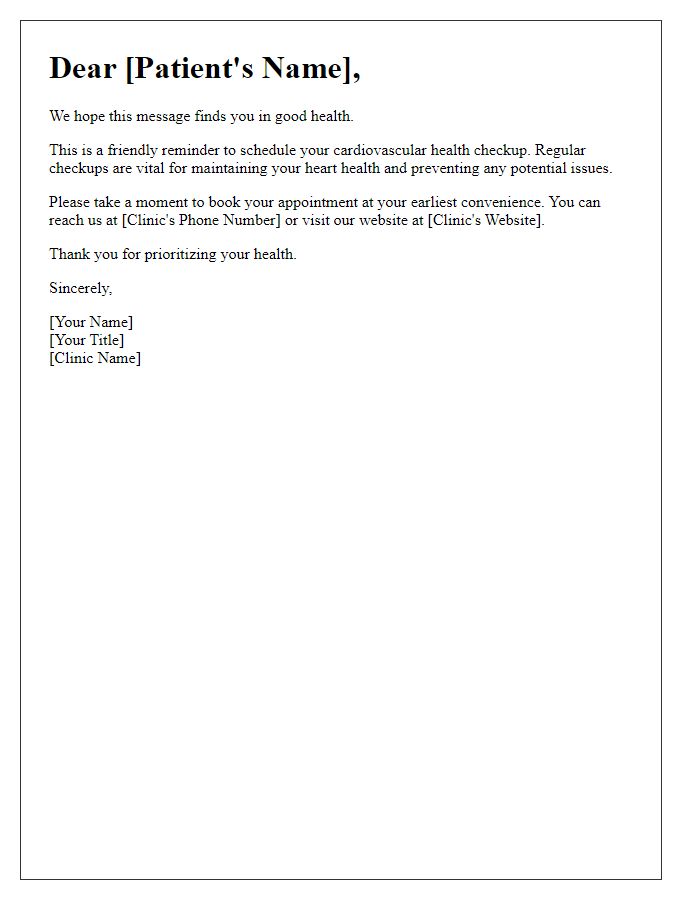
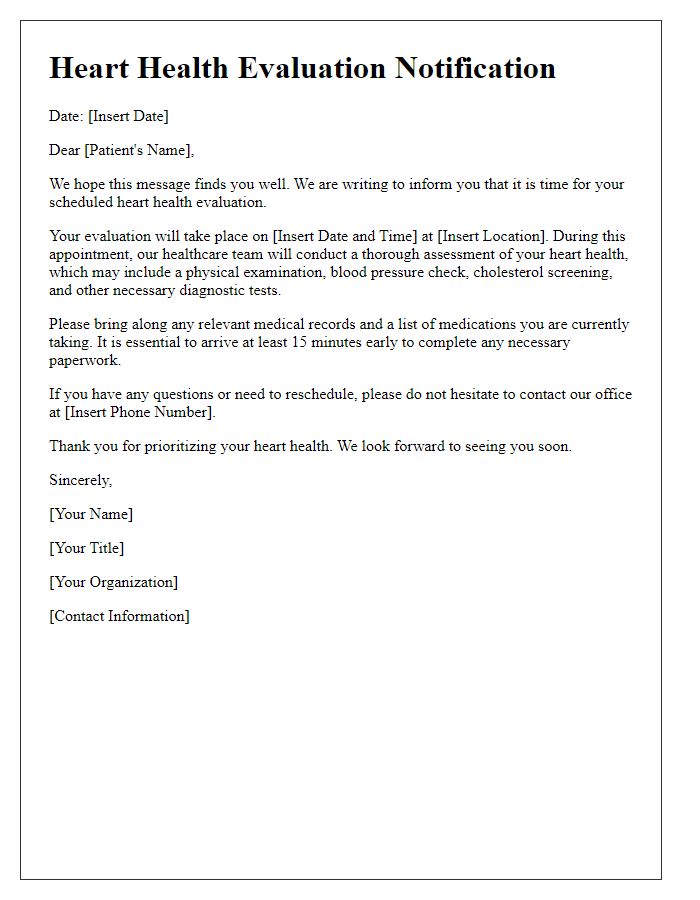
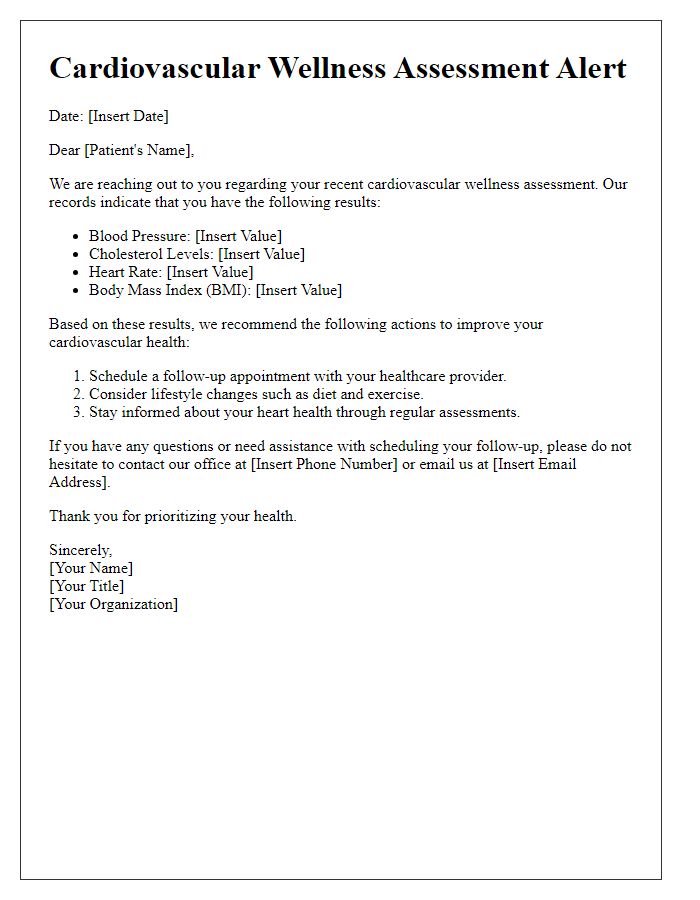
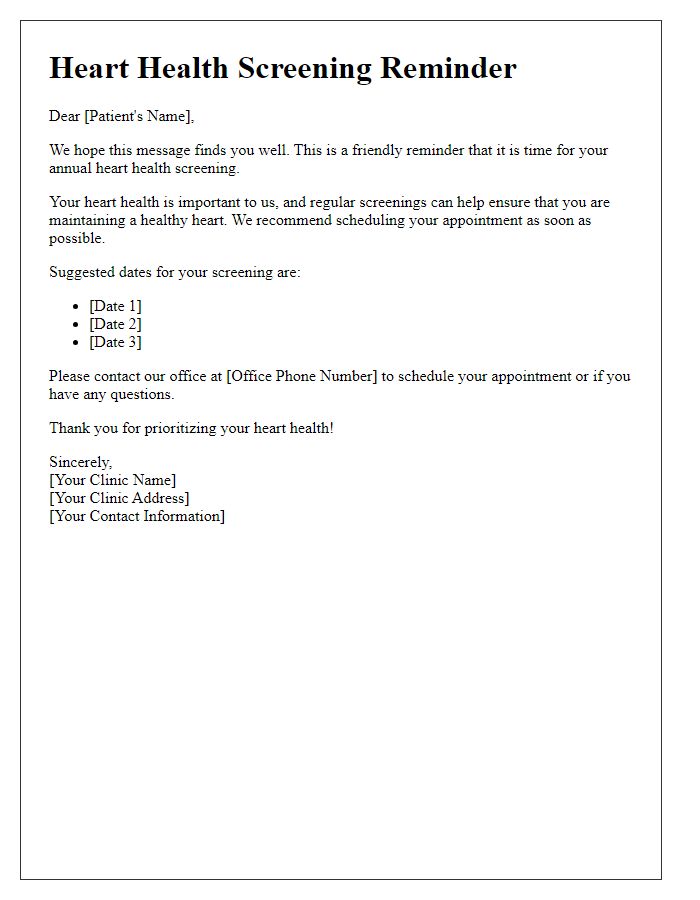
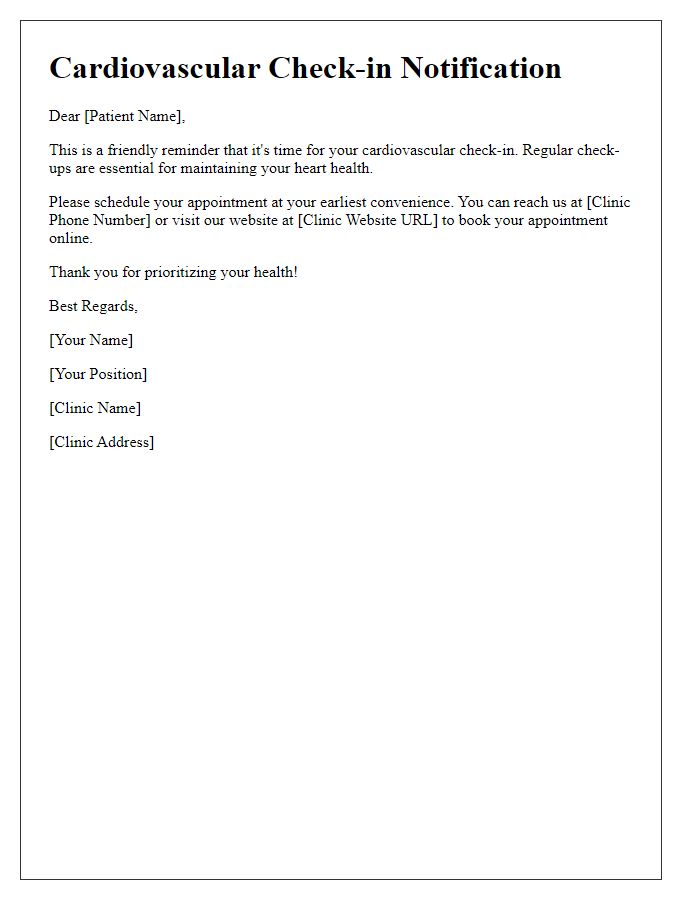
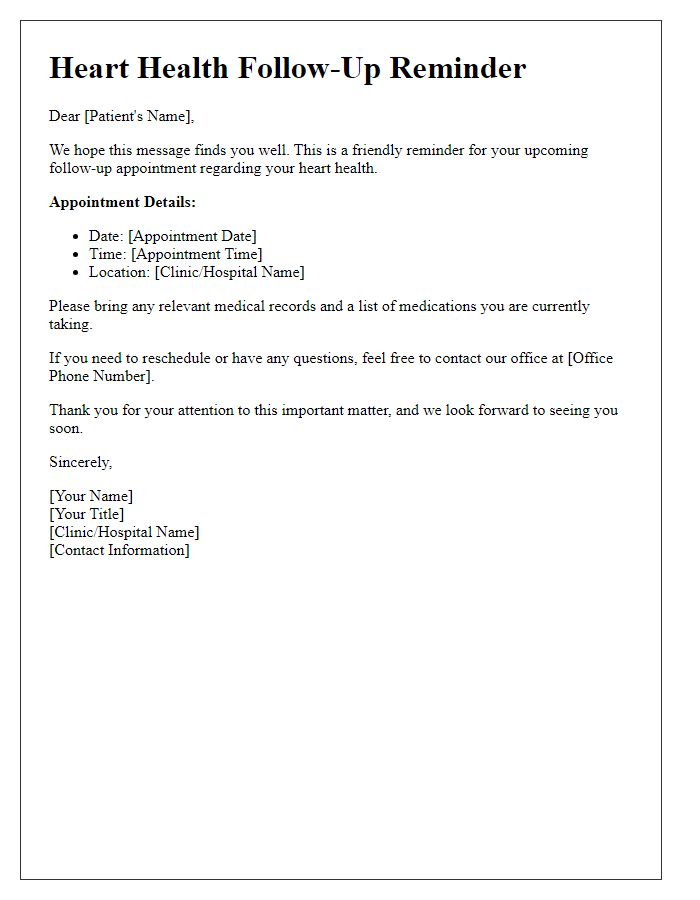
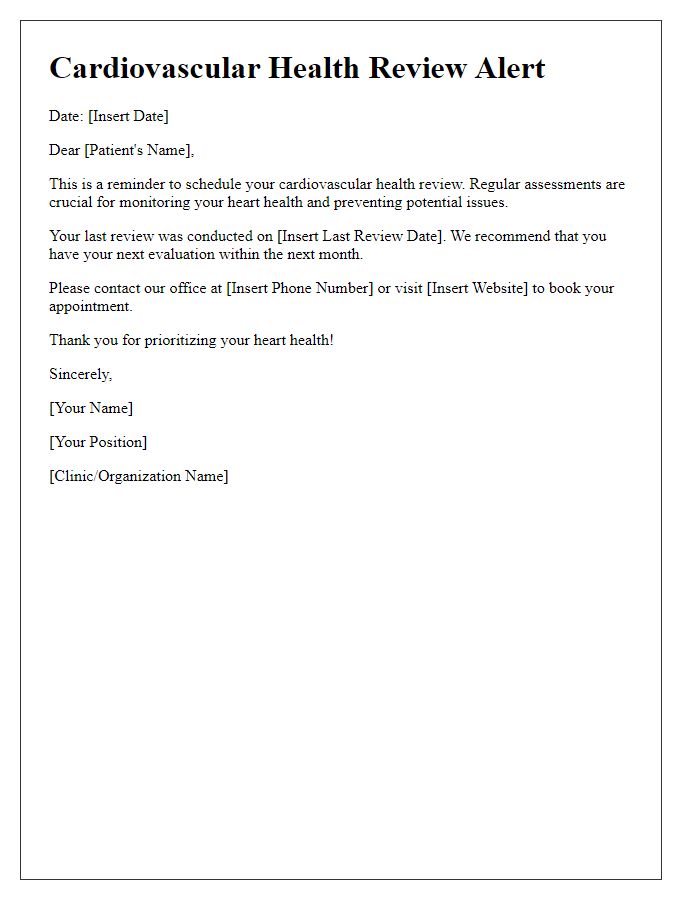
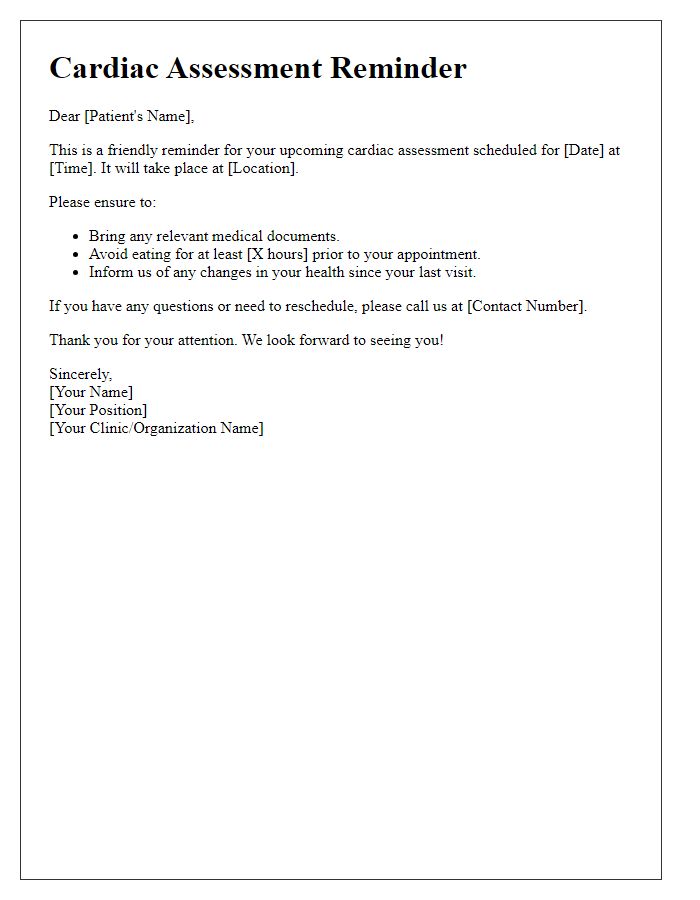
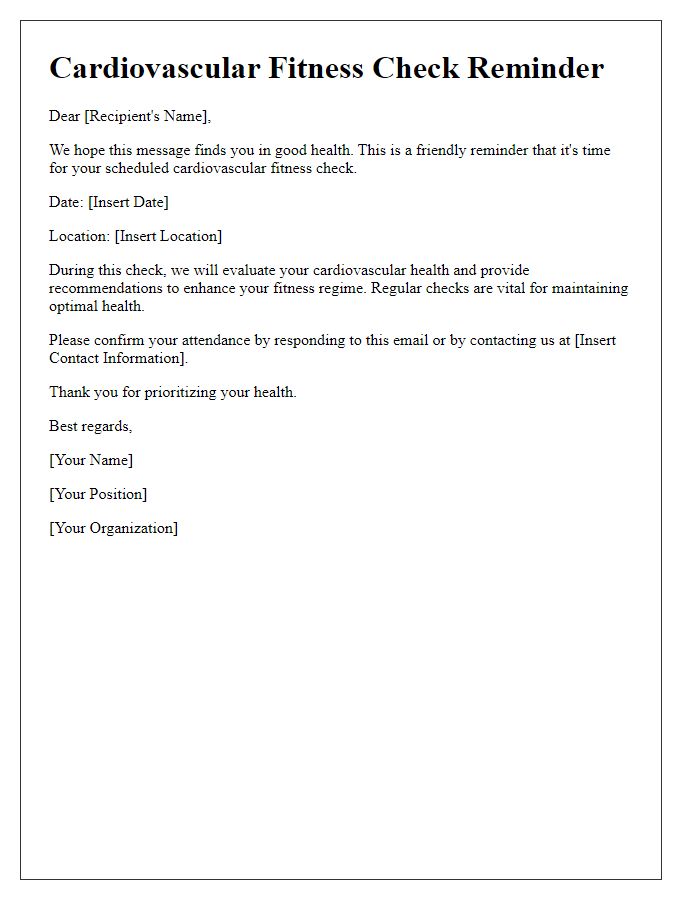
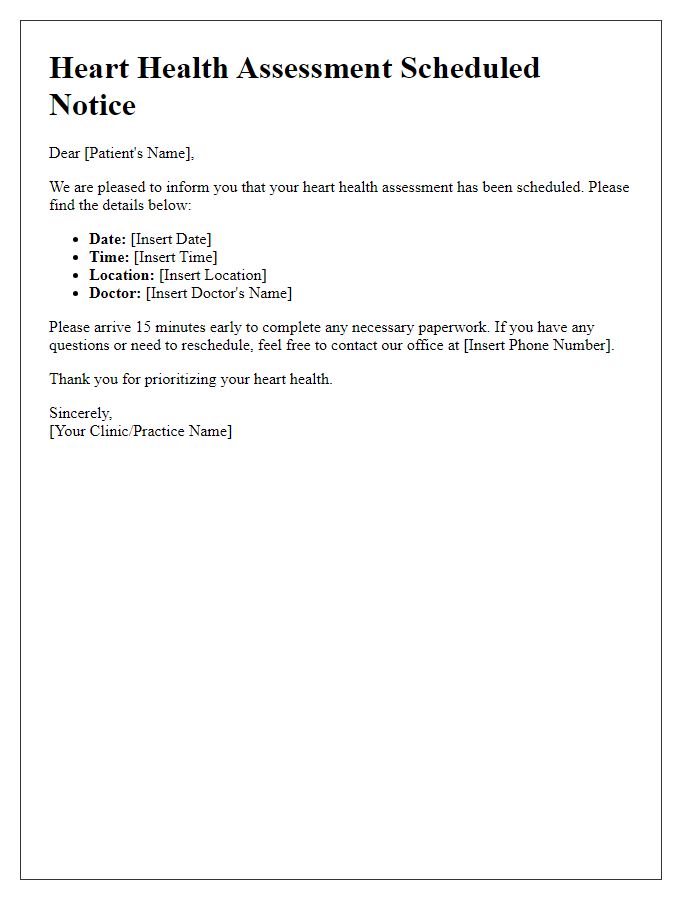


Comments